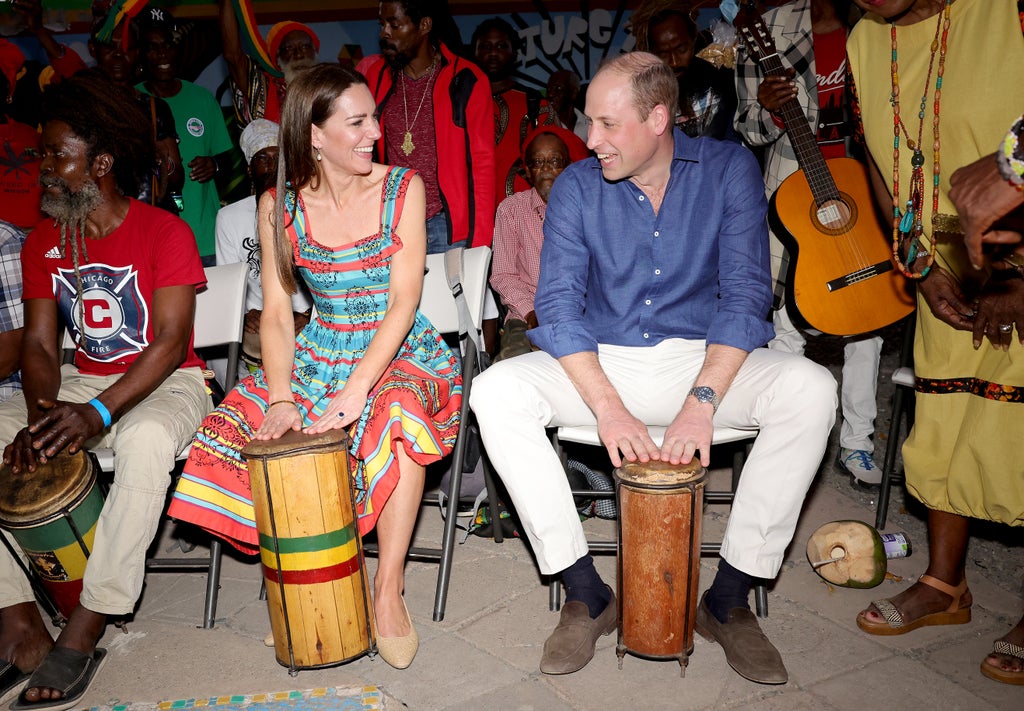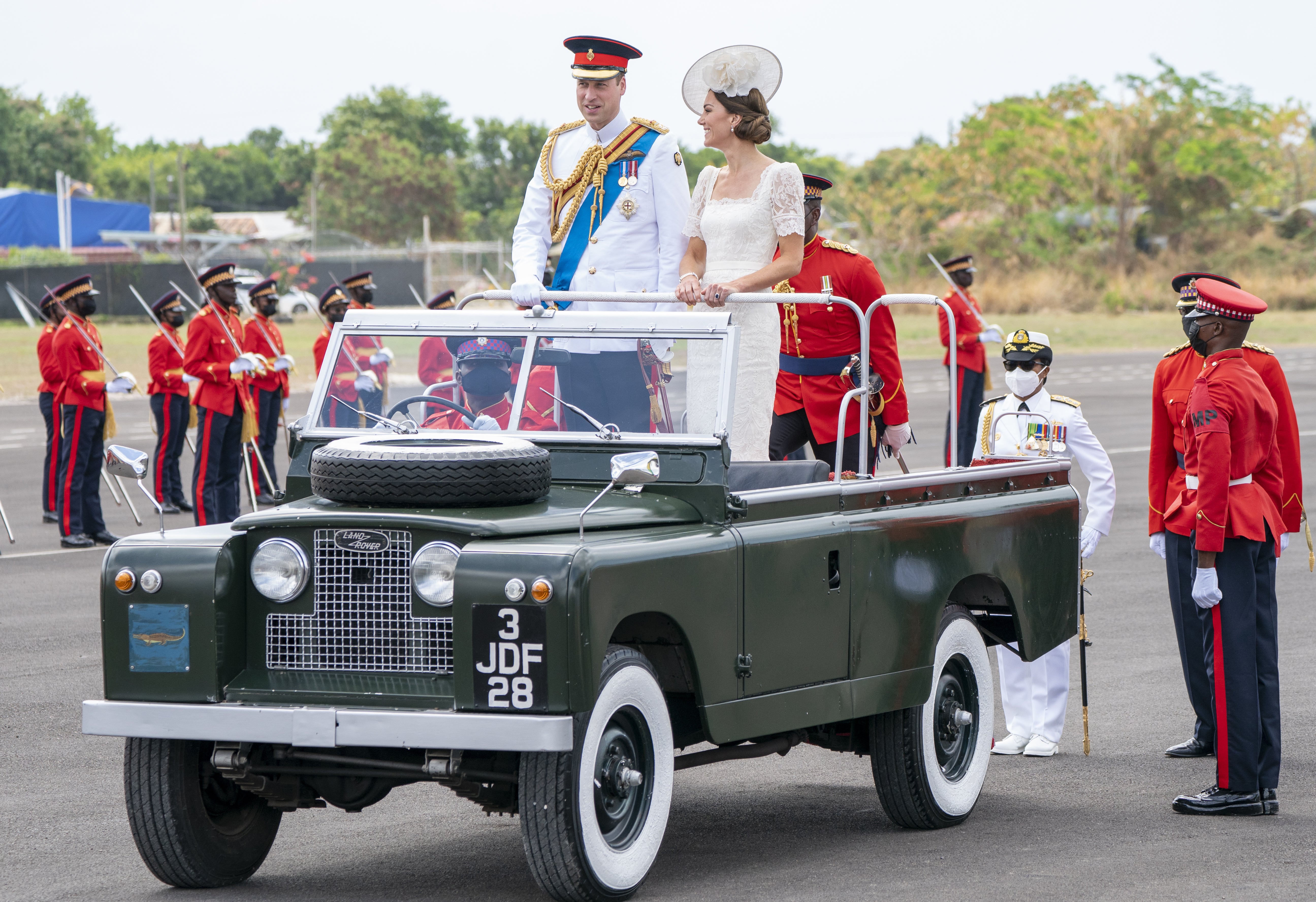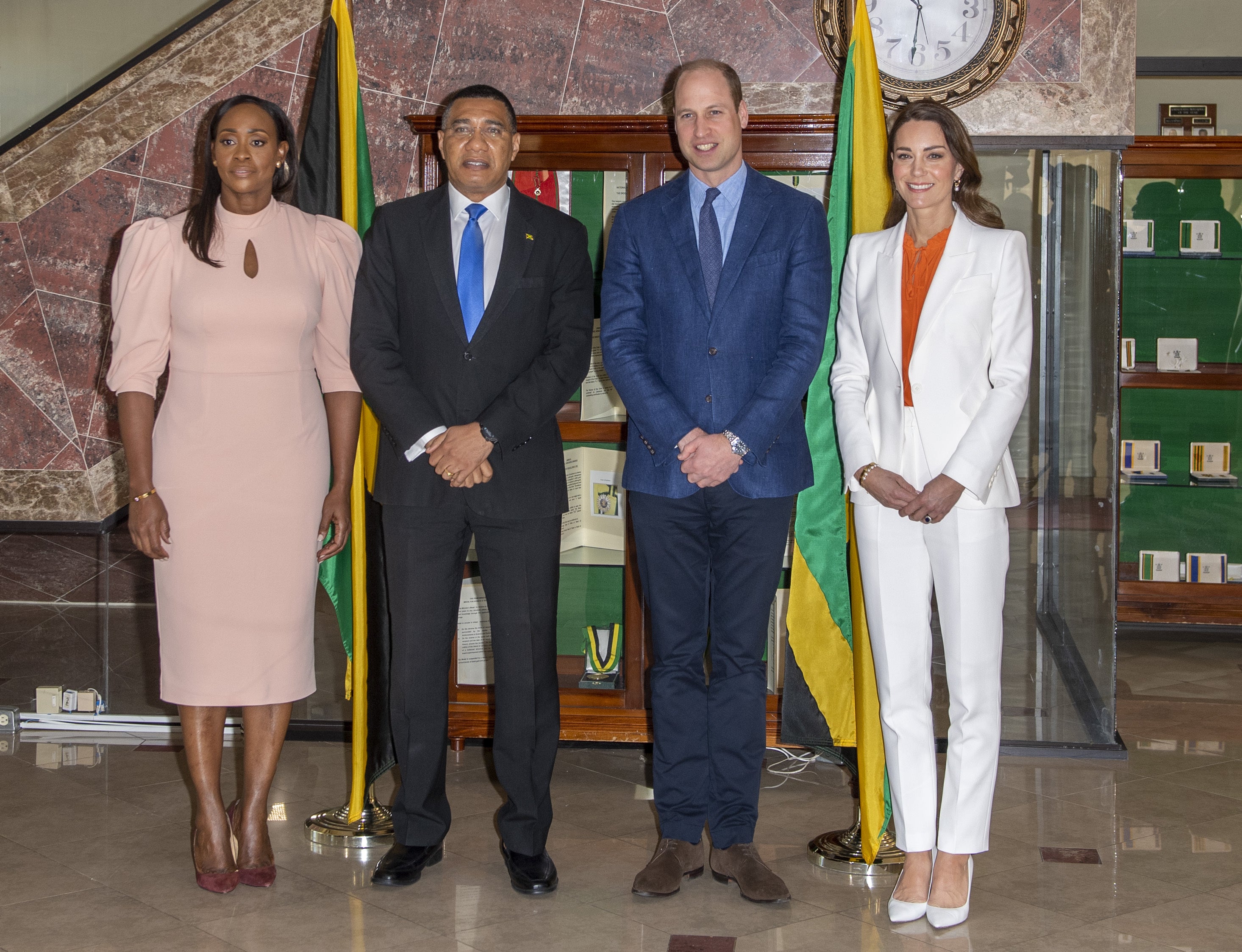
Jamaican campaigners have criticised the £41,000 (JMD$8 million) price tag of taxpayers’ money attached to Prince William and Kate’s recent visit as part of Queen Elizabeth’s Platinum Jubilee celebration.
A freedom of information request submitted to the Jamaica prime minister’s office (OPM) by members of campaigning group Advocates Network revealed that the cost financed the controversial two-day trip that was marked with protests, calls for slavery reparations and the prime minister Andrew Holness announcing that the country will be removing the Queen as its head of state.
Itemised details sent to the campaigners, and seen by The Independent, included £20,000 (JMD$4 million) allocated for a lavish state dinner which lasted just a few hours.
There is a consensus that £41,000 is not, altogether, an expensive amount for a state visit. For example, the visit by former US President Barack Obama cost taxpayers roughly £1.3million ($JMD270 million) in 2015.
However, some citizens have argued that the money could have been used to alleviate problems within Jamaica which is grappling with soaring poverty rates, inflation and socioeconomic devastation brought about by the Covid-19 pandemic. At least 400,000 of the nation’s population of three million people are living below the breadline.
“The Advocates Network thinks that the government’s decision to prioritize the use of more than $8 million dollars of our hard-earned tax dollars on hosting the royal couple instead of addressing many of the urgent needs facing our country, is a display of gross insensitivity,” a spokesperson from Advocates Network said.

For example, the campaigners argue that there is urgent need for intervention to mitigate the negative effects of the Covid-19 pandemic upon children, exacerbated by preexisting issues.
Moreover, $8 million could provide 8,000 children breakfast at school for at least one month and guarantee running water or flush toilets for rural schools where thousands of students now attend without these amenities, they argue.
While the Duchess of Cambridge is passionate about early childhood development, campaigners say the money that funded her trip to Jamaica could have supported around 1,056 early childhood institutions failing to meet the standards required to ensure the proper development of children.
It also might have assisted some of the over 30,000 missing school children, many of whom are forced to resort to criminal activities in support of their impoverished families, they say.
Novelette Grant, retired Deputy Commissioner of the Jamaica Constabulary Force, said: “Our children are in desperate need of psycho-social assistance coming from a range of adverse experiences during the Covid pandemic.

“$8 million could have helped some of them to adjust and cope with mental health and behavioral challenges as they returned to school.”
The wider context of the visit - such as the legacy of colonialism and calls for Jamaica to become a republic amid ongoing poverty - gives justifiable cause for concern, other people have said.
“To most Jamaicans, the Royal family represents enslavement of their fore-parents and our constitution still aligns us to the Queen of England. That alone is a bitter taste in our mouths plus there were aspects of the visit that also left a bad taste in our mouths and got bad international press reports,” a commentator, Michael, wrote on Twitter.
“Add all of those negatives that most Jamaicans who wish to ditch our Westminster constitution to an $8 million dinner for the royals during a pandemic when most people lost income with no compensation from government.”
Lawyer Kenyatta Powell tweeted: “When minimum wage is less than $500k a year, $8M is a lot of money to spend in a little over 48 hrs on two of the most useless people on the planet.”

“It’s money that Jamaica could spend on its citizens,” another online commentator said.
Meanwhile, questions remain regarding the overall cost attached the Cambridges’ Jamaica trip.
Ahead of the royal visit, Information Minister Robert Morgan advised that the government would not be paying for the Duke and Duchess of Cambridge’s visit but would be responsible for some costs, namely security.
However, security costs were not revealed through the FOI response, neither was the paving of new roads in the lead up to the trip, refurbishment around Spanish Town Hospital which the royals visited and fees associated with other aspects of the royal visit.
“Every Jamaican citizen ought to be concerned about how their tax dollars are being spent, especially now in the throes of the Covid pandemic when there are so many urgent needs,” Professor Rosalea Hamilton, founding director of the Institute of Law and Economics, told The Independent.
“These are not normal times; it cannot be business as usual. Full transparency and accountability for every dollar spent on the royal visit is important for Jamaicans to assess whether they got value for their money given other urgent needs. This includes money spent by the tax-funded Governor General’s Office.”

The office of Jamaica’s governor-general Patrick Allen - who represents Queen Elizabeth, the head of state - is thought to have partly-funded Prince William and Kate’s voyage to the island nation.
A political source has indicated to The Independent that Mr Allen’s office was involved in expenditure. However, his office remains exempt from freedom of information legislation despite the obligation of taxpayers to fund it to the tune of £3.4 million (JMD$407 million), just as the royal household in Britain is also exempt from freedom of information legislation.
The Independent has approached the Government of Jamaica, the Opposition and Buckingham Palace for comment.







